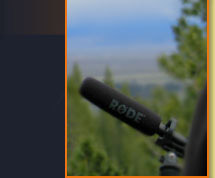last updated: December 19, 2007 03:21:07 AM
WASHINGTON -- Congress is playing Sierra Nevada peacemaker in a big spending bill that tries to gently resolve lawsuits about logging around such places as Giant Sequoia National Monument.
With a few words discretely tucked into a several-thousand-page bill, lawmakers are urging the Forest Service, tree cutters and tree huggers to work out their differences over timber harvesting. Mediation beats litigation, Congress figures.
"The goal of this language is to push the sides together to come up with a solution that works," Democratic Sen. Dianne Feinstein of California said Tuesday.
The $474 billion spending bill which gained final Senate approval Tuesday includes Feinstein's language directing the Forest Service "to collaborate" with loggers and environmentalists on harvest operations around the Sierra National Forest, Giant Sequoia National Monument and vicinity.
In theory, this encourages negotiated settlements rather than courtroom battles in the perennial conflict over Sierra Nevada logging. In practice, it's not clear what weight, if any, the words will have.
"I'm not sure it's going to do any good," Earthjustice attorney George Torgun said of the congressional language, though "it can help to encourage the parties to negotiate."
The Sierra Club and Sierra Forest Legacy repeatedly have sued the Forest Service over Sierra logging practices. Last year, environmental groups convinced a federal judge to block four proposed timber sales in and around Giant Sequoia National Monument.
Environmentalists worry that excessive logging around the 327,769-acre national monument could destroy habitat for the Pacific fisher, an endangered member of the weasel family.
"The Forest Service has failed to conduct an adequate and sufficient hard look at significant new information pertaining to the Pacific fisher," U.S. District Judge Charles Breyer ruled last year.
Sierra Forest Products has appealed Breyer's decision. The timber company says stringent logging limits cost jobs. The Forest Service, though it didn't join the appeal, insists that accumulated fuel must be removed to prevent catastrophic forest fires.
More recently, environmental groups sued to block the 131,500-acre Kings River logging project proposed for the nearby Sierra National Forest. Feinstein drafted her language encouraging negotiations last summer, apparently prompting environmentalists and the Forest Service to agree to bring in a mediator for the Kings River case.
"The mediator concluded the parties were too far apart, but ... she did encourage the two parties to keep talking," Torgun said, adding that "discussions have continued informally."
Three more months to talk
In early December, the competing sides advised Fresno-based U.S. District Judge Anthony Ishii: "The parties are engaging in good-faith discussions which could obviate the need to litigate this matter." Ishii agreed to give them three more months.
Feinstein cited the Giant Sequoia and the Sierra National Forest cases in the legislation. One interpretation is that it will help keep negotiators' feet to the fire. Another interpretation, Torgun said, is that the language has become extraneous.
It doesn't include any money figures, and it takes up only one paragraph in a package that totals 3,565 pages' worth of legislative and documents.
Still, the logging language shows how lawmakers use must-pass spending bills to accomplish other objectives.
The bill, for instance, reauthorizes the so-called Quincy Library Group project to manage trees across 1.5 million acres of the Plumas, Lassen and Tahoe national forests.
Sometimes the bills dictate policy through the power of the purse. The fiscal 2008 package, for instance, prohibits the Interior Department from buying light bulbs that aren't rated as Energy Star efficient.
Bee Washington Bureau reporter Michael Doyle can be reached at mdoyle@mcclatchydc.com or 202-383-0006.
















